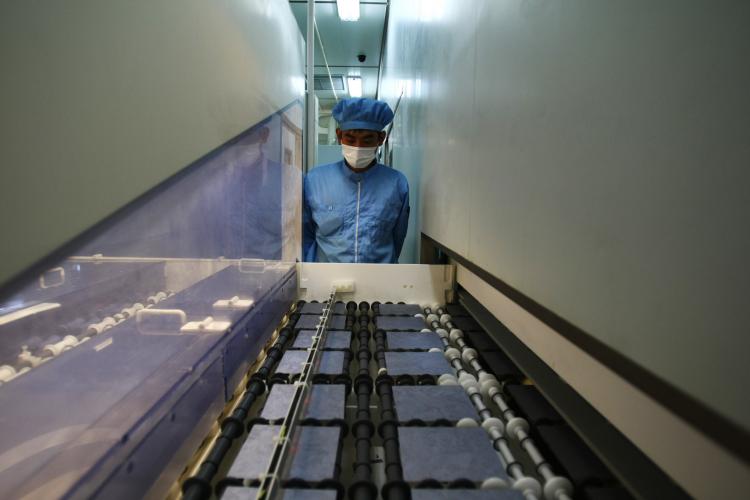While China might be able to manipulate the rare earth metal market, to monopolize it will be more difficult, says a specialist in geological sciences. Professor R.A. Henderson, a panel member of Earth Sciences at the Australian Research Council, said that rare earth metals are important in the production of many high-tech devices but market demand will weaken China’s hold on the resource sector.
“It will be very difficult to lock up these metals,” he said. “If prices move up, other producers will move in.” Rare earth metals are crucial a range of industries including computers, lasers, satellite communications, mobile phones and a gamut of environmental technologies.
China has substantial reserves through its mines in Inner Mongolia but has been knocking out competition over the last decade while expanding its own production. With demand increasing for technologies requiring rare earth metals, the Communist state has indicated that it will reduce exports of some of the metals and cease export altogether for a range of others.
China’s Central Ministry of Industry and Information Technology released a draft report last month entitled “Rare Earths Industry Development Plan 2009-2015,” which it submitted to the State Council for review and implementation in 2010. The report outlines plans to further tighten Chinese exports beyond the current 35,000 tons of rare earth metals and to impose a complete ban on a number of specific metals including dysprosium, terbium, and yttrium.
Dysprosium is critical to the strengthening of magnets in the electric systems of hybrid and electric vehicles. The metal’s property improves magnetic performance that is essential in electric car technology. Terbium and yttrium are dominantly used as phosphors in energy efficient lights.
Professor Henderson said China might be able to manipulate the market for a time but demand will stimulate more interest in the production of such metals from other nations, making it difficult for China to maintain its hold.
“They can attempt to manipulate market forces to their own advantage for national interest, but to lock up those commodities is a bit improbable,” he said. That may be the case, but it appears that China will at least try to secure all production of such metals for as long as it could.
Other Markets Could Develop
Rare earth metals are available in other countries, particularly the United States, Russia, South Africa, and Australia but processing is expensive, dirty, and produces a small amount of radioactive waste. Such cost and environment concerns have kept other countries beside China on the sidelines, for now.
China, with its scant regard for environmental concerns, has been able to expand its own mines while undercutting competition and, in many cases, forcing closure of mines in other markets.
In Australia it is attempting to go one step further and buy up the holdings. One Australian company, Lynas Corp., owns the Mt. Weld mining facility in Western Australia, considered one of the richest deposits of rare earth metals in the world. Lynas originally shipped the Mt. Weld metals to be processed by plants in China. However, with China increasing its focus on the sector, Lynas is considering alternatives.
“Increasing government control of the rare earths industry in China [was] increasing the project risk for our plant,” Lynas said.
The company entered into negotiations with the Malaysian Industrial Development Association (MIDA), to start up a factory in Kuantan, in the state of Pahang, Malaysia.
MIDA offered attractive conditions and benefits including a 12 year tax free period but the deal was torched when China Non-Ferrous Metal Mining became a majority shareholder of the plant.
Australia’s second largest rare earth mining company, Arafura Resources, is also heavily entwined with China.
Even if China ties up some of its competitors, other competition is emerging. Japan, which relies heavily on are earth metals to sustain its big investments in environmental technology—particularly hybrid cars—is already seeking alternative supplies.
Toyota Motor Corp., the world’s biggest producer of hybrid vehicles, is seeking rare earth sources in Canada and Vietnam.







Friends Read Free